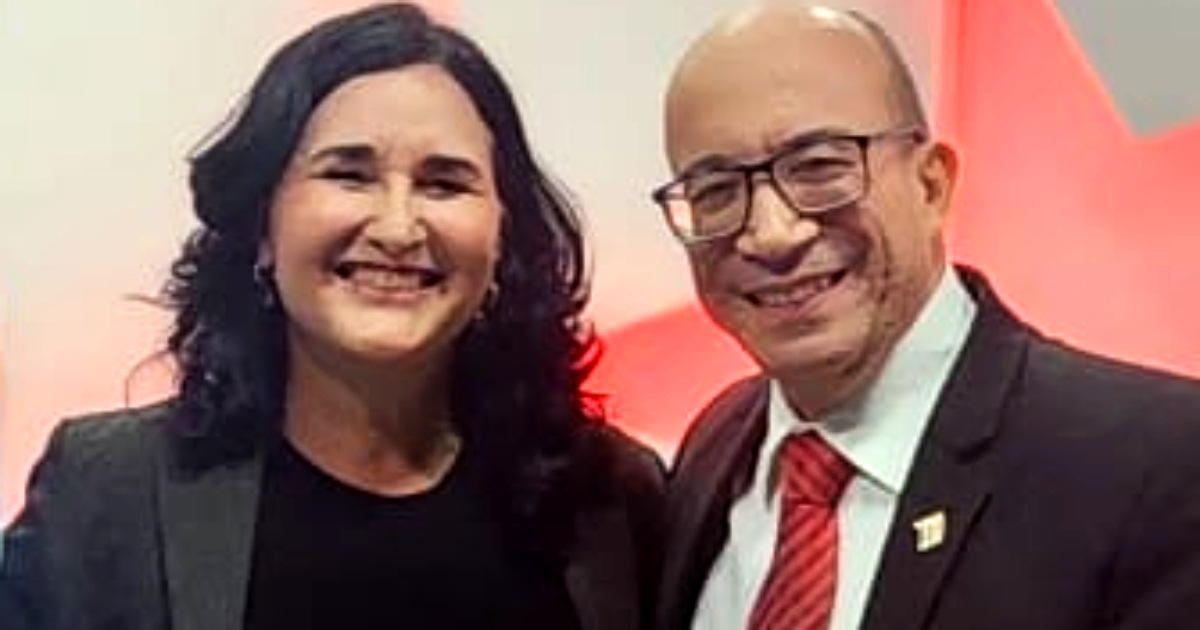Johana Tablada de la Torre, the Deputy Director General for North America at Cuba's Ministry of Foreign Affairs (MINREX), has vehemently denied U.S. allegations about the existence of Chinese spy bases on Cuban soil. "There are no Chinese espionage bases in Cuba, and the U.S. government knows it well. Find another lie!" Tablada declared in a recent Facebook post, maintaining her characteristic defiant tone.
This statement comes amid renewed diplomatic tensions between Cuba and the United States, following a report from U.S. intelligence agencies claiming the presence of Chinese infrastructure on the island, allegedly used for collecting sensitive data about the United States. These accusations have intensified lately, with Washington expressing concern over Beijing's growing influence in the Caribbean.
An Effort to Discredit U.S. Intelligence Reports
The Cuban government's response, led by officials like Tablada and the Cuban Foreign Minister, aims to undermine the U.S. intelligence reports, labeling them as political tactics to justify economic and diplomatic sanctions against Cuba.
The topic of Chinese espionage bases in Cuba isn't new, but it has gained particular attention following recent revelations. In June 2023, the Biden administration confirmed the presence of a Chinese facility on the island, reportedly used for intelligence gathering on the United States. This base was said to be part of a strategic agreement between Havana and Beijing, involving financial support for Cuba's struggling economy in exchange for espionage cooperation.
Washington's Growing Concerns Over Chinese Influence
A report released in December 2024 by U.S. intelligence expanded on these revelations, detailing that these bases operate with advanced technology and specialized personnel, designed to intercept sensitive communications from the U.S. Washington is worried these activities are part of China's broader effort to consolidate its influence in Latin America, using Cuba as a strategic point due to its proximity to Florida and other critical U.S. security installations.
Among the activities attributed to these supposed bases are satellite signal interception, military communication networks, and U.S. government agency data. According to the report, the Cuban regime allegedly allowed these operations as part of its political and economic alliance with China, while U.S. sanctions continue to stifle Cuba's economy.
Cuban Regime's Denials
The Cuban regime has consistently dismissed these accusations, branding them as fabrications by the United States. In several public statements, Foreign Minister Bruno Rodríguez and other regime figures, including Tablada, have insisted that there are no foreign espionage bases in the country. In June 2023, Rodríguez called these allegations part of a "disinformation campaign" to justify the "blockade" policy against Cuba.
The regime also claims that Cuba does not permit activities that compromise its sovereignty. However, these statements conflict with the rising number of allegations about Chinese presence on the island and the close economic ties between the two nations. In July 2024, Havana again denied the accusations after another U.S. report, insisting that such claims were baseless.
Johana Tablada de la Torre: A Staunch Defender of the Regime
Johana Tablada de la Torre has established herself as one of the primary voices defending the Cuban regime against U.S. accusations. As the Deputy Director for North America at MINREX, her role focuses on countering U.S. criticism and reinforcing the official narrative in international forums. Tablada has been at the center of numerous controversies, including dismissing claims about the "Havana Syndrome" in April 2023, calling it a "fabricated story" to justify aggressive policies against the island, and labeling the U.S. paranoia as the "Washington Syndrome."
In the same year, she accused the United States of wanting to "destroy the Cuban Revolution against the will of the people," a recurring argument in her rhetoric. Her statements often combine direct confrontation with a strong adherence to the regime's narrative, which always portrays itself as a victim of U.S. policies.
On the international stage, Tablada has been identified as a key figure in justifying the regime's repressive actions. In 2019, she defended the actions of the Cuban police against independent journalists, claiming they were necessary measures to maintain "public order." In 2023, she was listed among "repressors" by Cuban exile activists, who accused her of covering up human rights violations.
Moreover, Tablada has defended the constitutional prohibition of ideological plurality in the island, asserting that Cuba's stability depends on socialism and that any attempt to alter the political system is a direct attack on national sovereignty.
Once again, Tablada's declarations regarding Chinese spy bases in Cuba highlight the regime's efforts to discredit any accusation that challenges its narrative. However, the revelations from U.S. reports about the presence of Chinese intelligence infrastructure on the island heighten tensions between the two countries and emphasize Cuba's strategic role in the geopolitical conflict between Washington and Beijing.
While the regime continues to deny these accusations, Tablada's statements reflect the official line of a totalitarian regime increasingly vulnerable on the international stage. Her role, as an unwavering defender of the system, represents the regime's strategy to maintain power by justifying questionable alliances and rejecting any critical scrutiny from abroad.
Understanding the Alleged Chinese Espionage in Cuba
What are the allegations about Chinese spy bases in Cuba?
The allegations suggest that there are Chinese-operated bases in Cuba used for gathering intelligence on the United States, reportedly as part of a strategic agreement between Havana and Beijing.
How has the Cuban regime responded to these accusations?
The Cuban regime, including officials like Johana Tablada, has consistently denied these accusations, calling them fabrications by the United States to justify sanctions against Cuba.
Why is the alleged presence of Chinese bases in Cuba significant?
The alleged presence is significant due to Cuba’s strategic location near the U.S., particularly Florida, making it a potential base for intelligence-gathering activities that could threaten U.S. national security.
